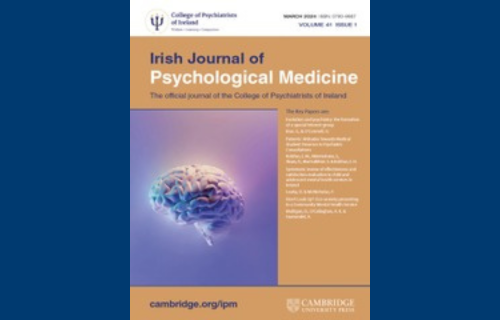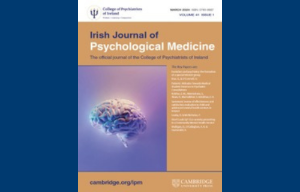Impact of a national audit on child and adolescent psychiatrists’ prescribing practices
Thursday, 15 August, 2024
Share

Congratulations to UCD School of Medicine's Dr Laura Bond,  Professor Fiona McNicholas, and UCD Medical Student, Jia Zhe Ong on their recently published paper titled Impact of a national audit on child and adolescent psychiatrists’ prescribing practices in the (opens in a new window)Irish Journal of Psychological Medicine.
Professor Fiona McNicholas, and UCD Medical Student, Jia Zhe Ong on their recently published paper titled Impact of a national audit on child and adolescent psychiatrists’ prescribing practices in the (opens in a new window)Irish Journal of Psychological Medicine.
Abstract
Background:
A look back review of South Kerry Child and Adolescent Mental Health Services (CAMHS) in Ireland, known as the ‘Maskey report’ (MR), highlighted substandard prescribing practices. The aim of this ‘Maskey Impact Study’ (MIS) was to explore changes to child and adolescent psychiatrists’ prescribing practices following the MR.
Method:
The study was cross-sectional and mixed method. A study specific questionnaire was distributed electronically to psychiatrists working in CAMHS (n = 160).
Results:
102 psychiatrists participated in the study (response rate 63.8%). Perceived improvement in prescribing practices included improved medical record keeping (63.7%), consent documentation (53.9%), medication information provision (41.2%) and physical health monitoring (60.8%). However, 43.1% of psychiatrists reported a reluctance to prescribe medication even when clinically indicated and 50% were more likely to avoid off-label use. Most respondents reported increased stress levels (80.4%) with higher stress being significantly associated with reticence in prescribing (χ2 = 11.746, p < .001) and avoiding off-label use (χ2 = 15.392, p < 0.001). Thematic analysis highlighted increased medication hesitancy, enforced ‘meaningless’ bureaucracy and medication mistrust among families.
Discussion:
Although improvements reported are welcomed, the increased hesitancy of medication use, avoidance of prescribing more than one medication, and avoidance of off-label use, is of concern with potential unintended adverse consequences. Reluctance in prescribing may deprive youth of access to evidence-based treatments and limit exposure of NCHDs to the safe practice of consultant-initiated psychopharmacology. Further research will be important to determine if this impacts clinical care. Continued education in psychopharmacology is essential along with increased public awareness of the evidence for medication, to help restore public confidence and trust in psychopharmacology.
Read the full paper (opens in a new window)here.